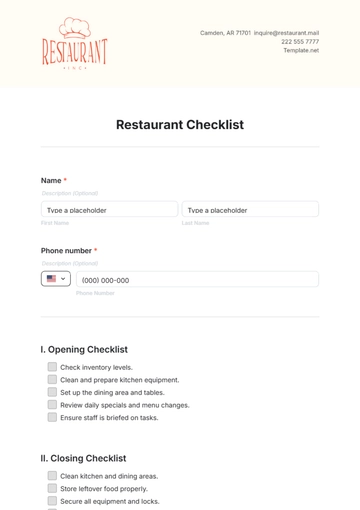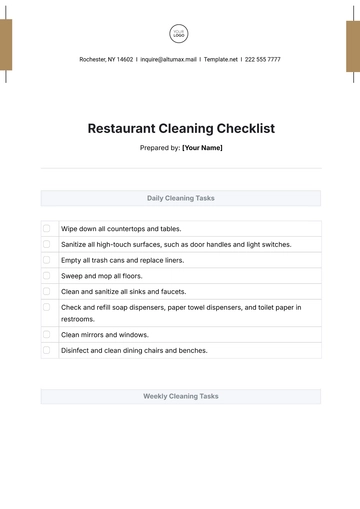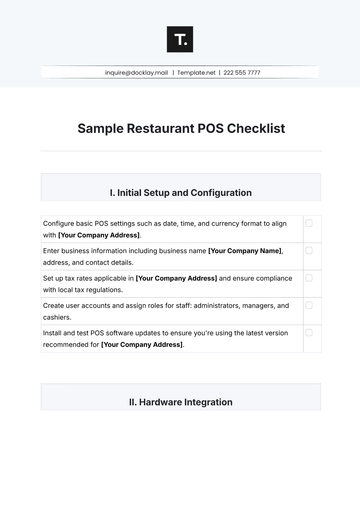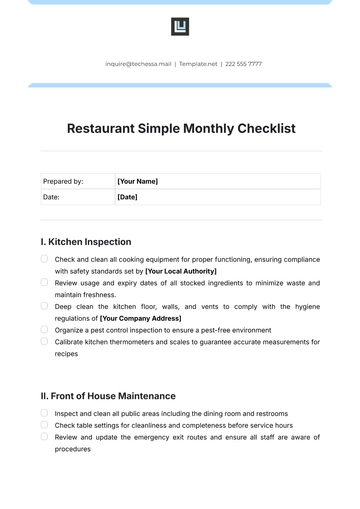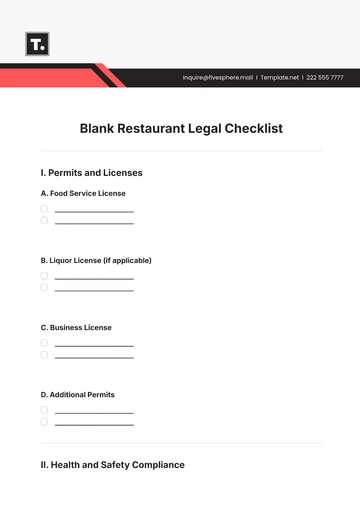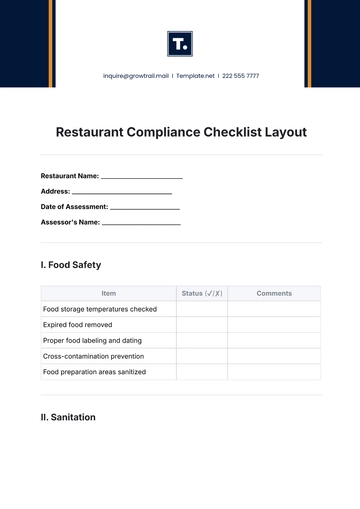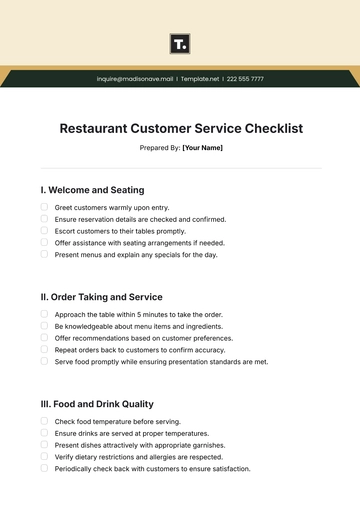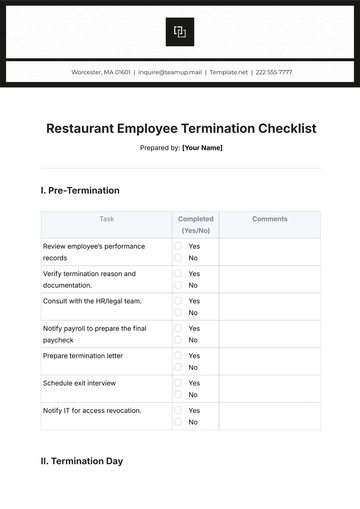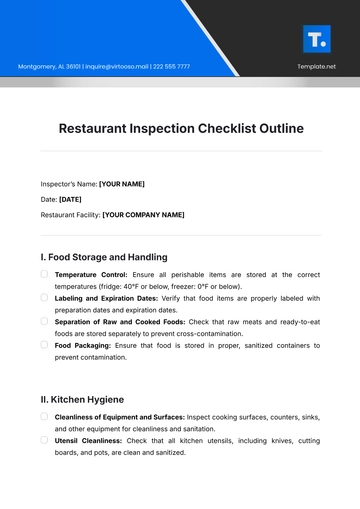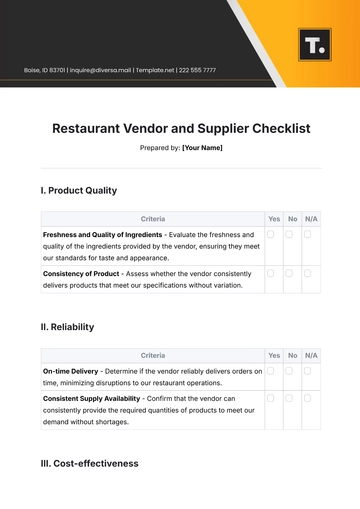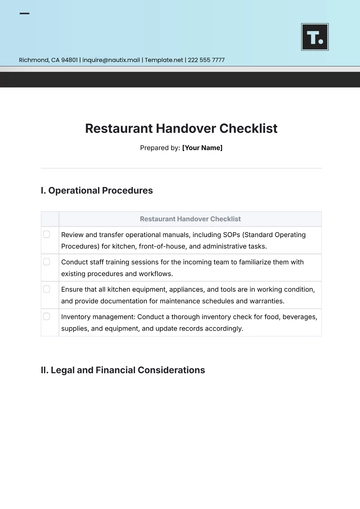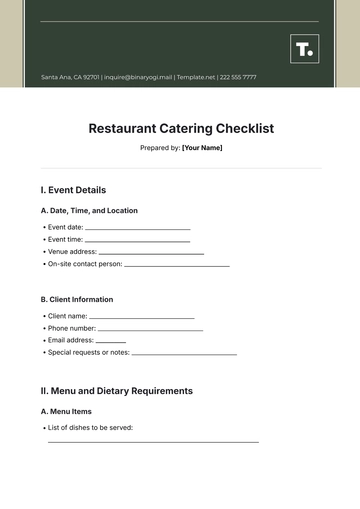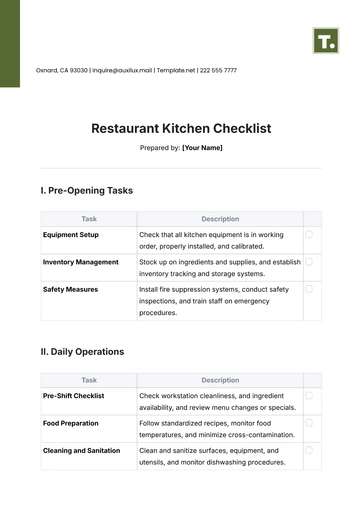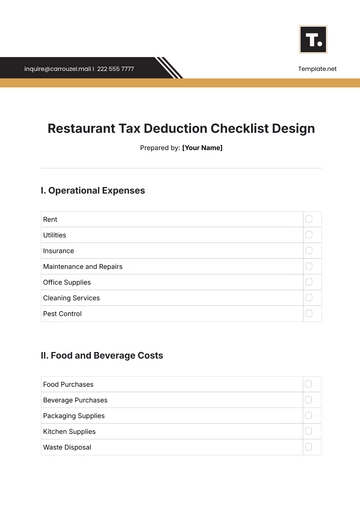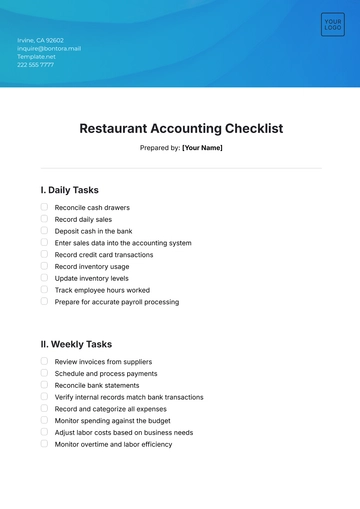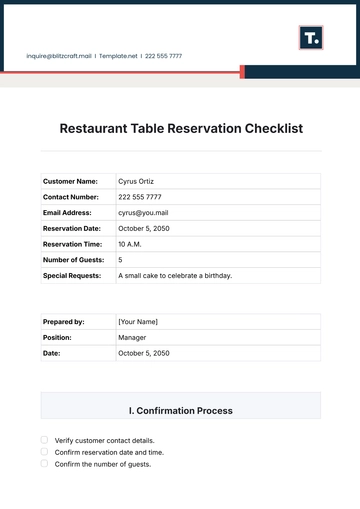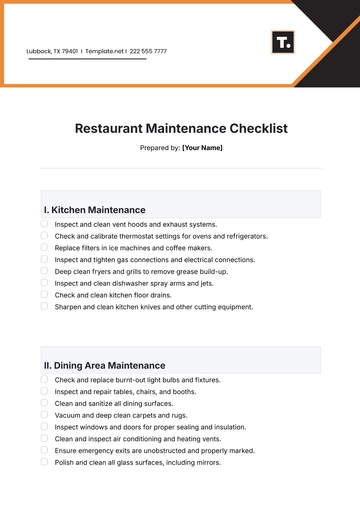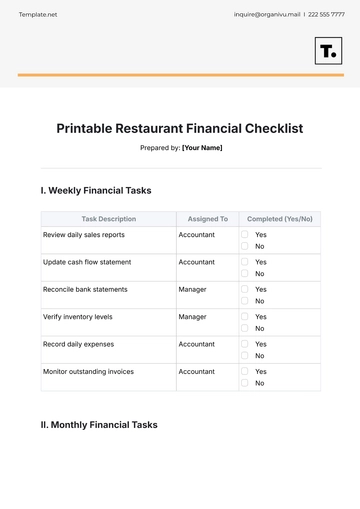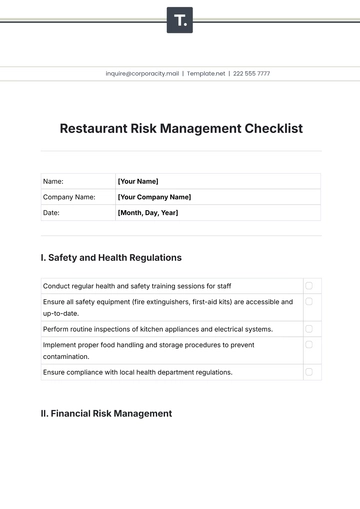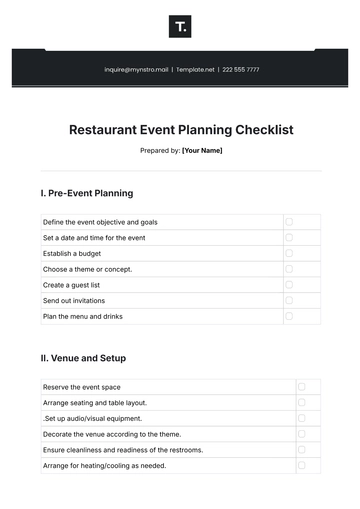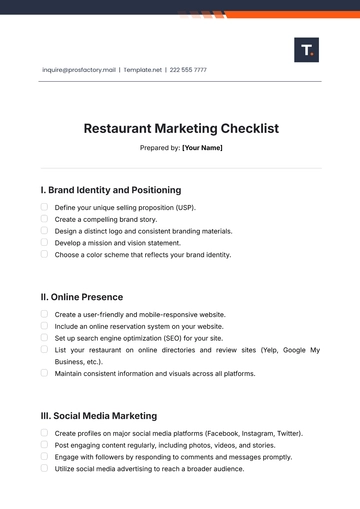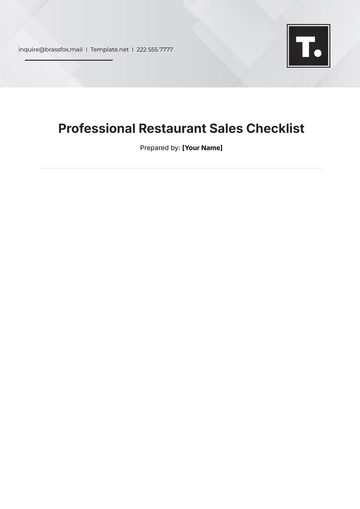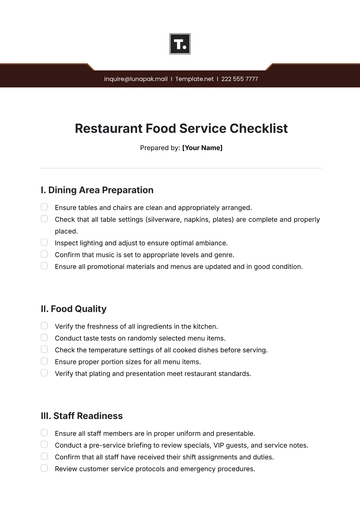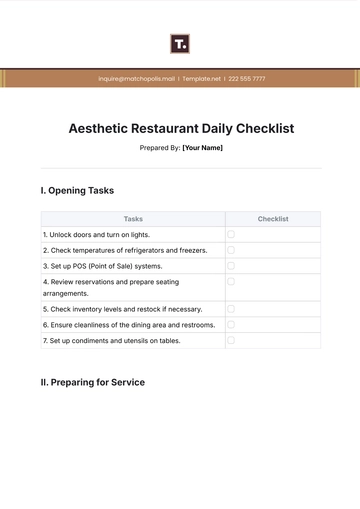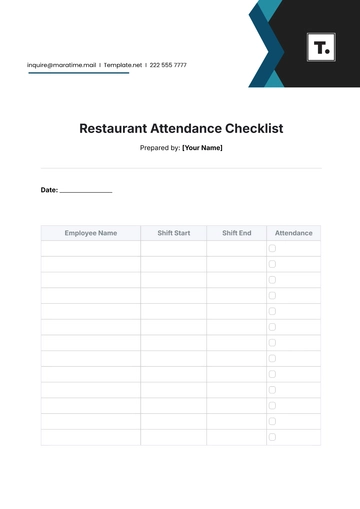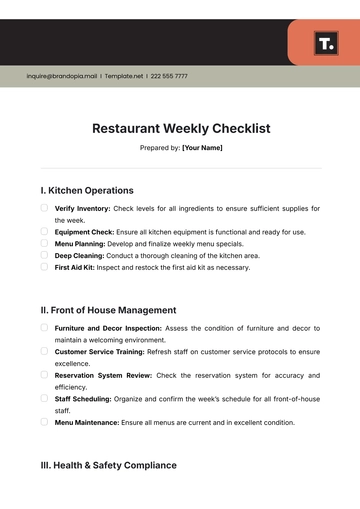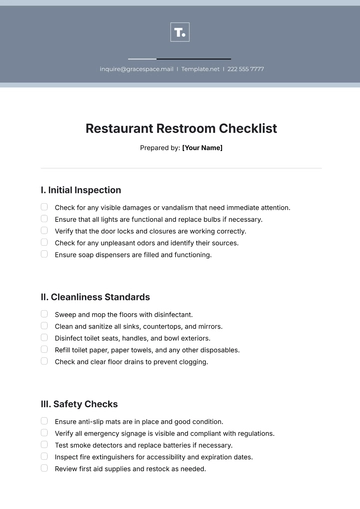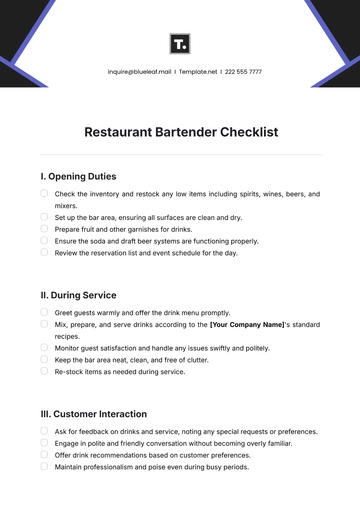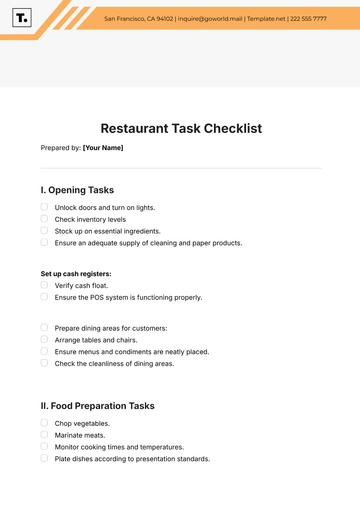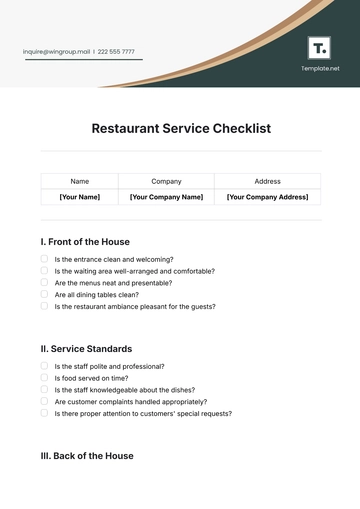Free Restaurant Manager Checklist
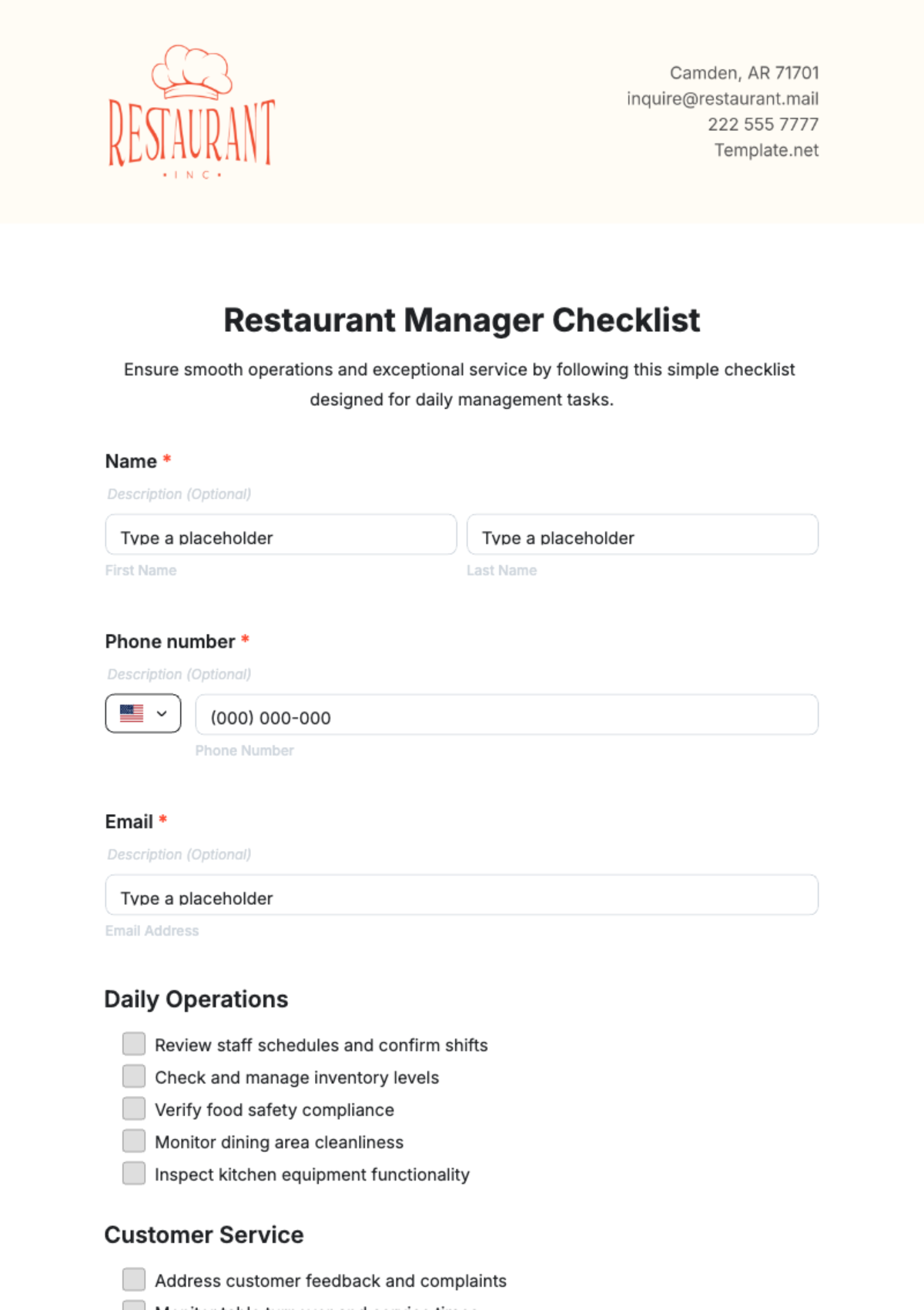
Ensure smooth operations and exceptional service by following this simple checklist designed for daily management tasks.
Name
Phone number
Daily Operations
Review staff schedules and confirm shifts
Check and manage inventory levels
Verify food safety compliance
Monitor dining area cleanliness
Inspect kitchen equipment functionality
Customer Service
Address customer feedback and complaints
Monitor table turnover and service times
Ensure staff is attentive and courteous
Financial Management
Review daily sales reports
Ensure cash handling procedures are followed
Update inventory records
Health and Safety
Conduct a safety inspection of the premises
Verify compliance with health regulations
Review and reinforce hygiene practices among staff
Form Templates @ Template.netForm Templates @ Template.netForm Templates @ Template.netThank you for your submission!
We appreciate you taking the time to submit.
Create free forms at Template.net
- 100% Customizable, free editor
- Access 1 Million+ Templates, photo’s & graphics
- Download or share as a template
- Click and replace photos, graphics, text, backgrounds
- Resize, crop, AI write & more
- Access advanced editor
Optimize restaurant operations with the Restaurant Manager Checklist from Template.net. This editable and customizable template, easily tailored with our Ai Editor Tool, ensures a personalized and efficient management routine. Elevate the managerial experience with this user-friendly checklist, designed for maximum efficiency. Customize effortlessly, ensuring seamless task management and organizational success with ease and precision.
You may also like
- Cleaning Checklist
- Daily Checklist
- Travel Checklist
- Self Care Checklist
- Risk Assessment Checklist
- Onboarding Checklist
- Quality Checklist
- Compliance Checklist
- Audit Checklist
- Registry Checklist
- HR Checklist
- Restaurant Checklist
- Checklist Layout
- Creative Checklist
- Sales Checklist
- Construction Checklist
- Task Checklist
- Professional Checklist
- Hotel Checklist
- Employee Checklist
- Moving Checklist
- Marketing Checklist
- Accounting Checklist
- Camping Checklist
- Packing Checklist
- Real Estate Checklist
- Cleaning Checklist Service
- New Employee Checklist
- Food Checklist
- Home Inspection Checklist
- Advertising Checklist
- Event Checklist
- SEO Checklist
- Assessment Checklist
- Inspection Checklist
- Baby Registry Checklist
- Induction Checklist
- Employee Training Checklist
- Medical Checklist
- Safety Checklist
- Site Checklist
- Job Checklist
- Service Checklist
- Nanny Checklist
- Building Checklist
- Work Checklist
- Office Checklist
- Training Checklist
- Website Checklist
- IT and Software Checklist
- Performance Checklist
- Project Checklist
- Startup Checklist
- Education Checklist
- Home Checklist
- School Checklist
- Maintenance Checklist
- Planning Checklist
- Manager Checklist
- Wedding Checklist
- Vehicle Checklist
- Travel Agency Checklist
- Vehicle Inspection Checklist
- Interior Design Checklist
- Backpacking Checklist
- Business Checklist
- Legal Checklist
- Nursing Home Checklist
- Weekly Checklist
- Recruitment Checklist
- Salon Checklist
- Baby Checklist
- Equipment Checklist
- Trade Show Checklist
- Party Checklist
- Hospital Bag Checklist
- Evaluation Checklist
- Agency Checklist
- First Apartment Checklist
- Hiring Checklist
- Opening Checklist
- Small Business Checklist
- Rental Checklist
- College Dorm Checklist
- New Puppy Checklist
- University Checklist
- Building Maintenance Checklist
- Work From Home Checklist
- Student Checklist
- Application Checklist
